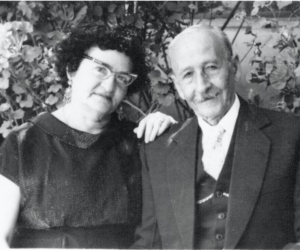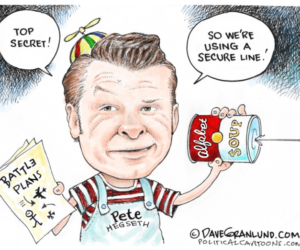
Amazon/Washington Post chief Jeff Bezos and National Enquirer (AMI) boss David Pecker have squared off in public over Pecker’s threatened publication of purloined pictures of Bezos’ penis. AMI threatened to publish photos Bezos sent to Lauren Sanchez, his paramour, unless Bezos made a public statement that AMI’s earlier airing of Bezos’ extramarital affair wasn’t politically motivated. Post Publisher Bezos is a frequent political target of Donald Trump, and Pecker and the future ex-president, who has stumped for tougher libel laws, are old chums. Bezos believes that the Enquirer’s attack was politically motivated, and he went public with AMI’s threat, calling it blackmail and extortion, rather than knuckling under.
Legal pundits took promptly to the airwaves. Alan Dershowitz, one-time hero of the Left, presented the first section of his future appellate brief on the subject of libel and extortion. The constitutional law scholar argued that AMI is protected by the first amendment, which, when it comes to extortion, needs “some breathing space.” Dershowitz pulled the term from the existing body of First Amendment jurisprudence, in which it has been used to limit government’s ability to restrict speech or to punish the speaker.
In the 1963 landmark case of NY Times v. Sullivan, the Supreme Court ruled that a media defendant could not be held liable for libel unless its publication was motivated by actual malice. In his opinion, Justice William Brennan employed the breathing space parlance to justify enhanced press protection.
Breathing space has became a fixture in first amendment cases . In 2012, the Supreme Court struck down as unconstitutional a federal law making it criminal to lie about earning a military honor, referencing the necessary breathing space. Even a lie about valor deserves a little oxygen.
Dershowitz repeated the phrase several times, suggesting that he was trying to sell the concept’s application to extortion. He argued that, under the principle of breathing space, the first amendment protects coercive extortion if carried out by a member the media.
Blackmail and extortion are types of coercive speech; threats to cause a listener to do something he or she might not otherwise do. Blackmail is the demand for payment in exchange for not disclosing something concerning the listener. Such as “Give us $140 billion or we’ll publish a picture of your pecker.” That’s illegal, no question. But “ Make an announcement that our reporting about your affair wasn’t politically motivated or we ’ll publish a picture of your pecker.” Not illegal, according to Dershowitz and AMI.
The latter is speech designed to influence a listener’s decision. If the listener has a legitimate choice in response, the threat can be considered persuasive speech. “Endorse the Wall to prevent the country from being overrun by a caravan of Honduran refugees or we will report that you want the country to be overrun by a caravan of Honduran tefugees,” Is of the persuasive sort, arguably. “Endorse the Wall or we’ll publish a picture of your pecker?” Feh.
In the former case, the threatened reaction is related to the subject of the demand. More to the point, the listener has a legitimate choice that flowed from the subject. In the latter case, the response has no connection to the threat. The threatened action is meant to cause the listener personal humiliation and economic loss , having nothing to do with his political position on the Wall.
Coercive speech doesn’t deserve breathing space. In fact, it should be smothered in its sleep. Free speech is intended to enable an open exchange of ideas, free of official repression. The first amendment wasn’t intended to protect someone threatening personal harm to a listener. In that instance, it is the listener, also a member of the media, whose first amendment rights need protection.
Evan Sarzin is the author of Hard Bop Piano and Bud Powell published by Gerard & Sarzin Music Publishing. He writes and publishes Revolted Colonies (http://revoltedcolonies.com).
















